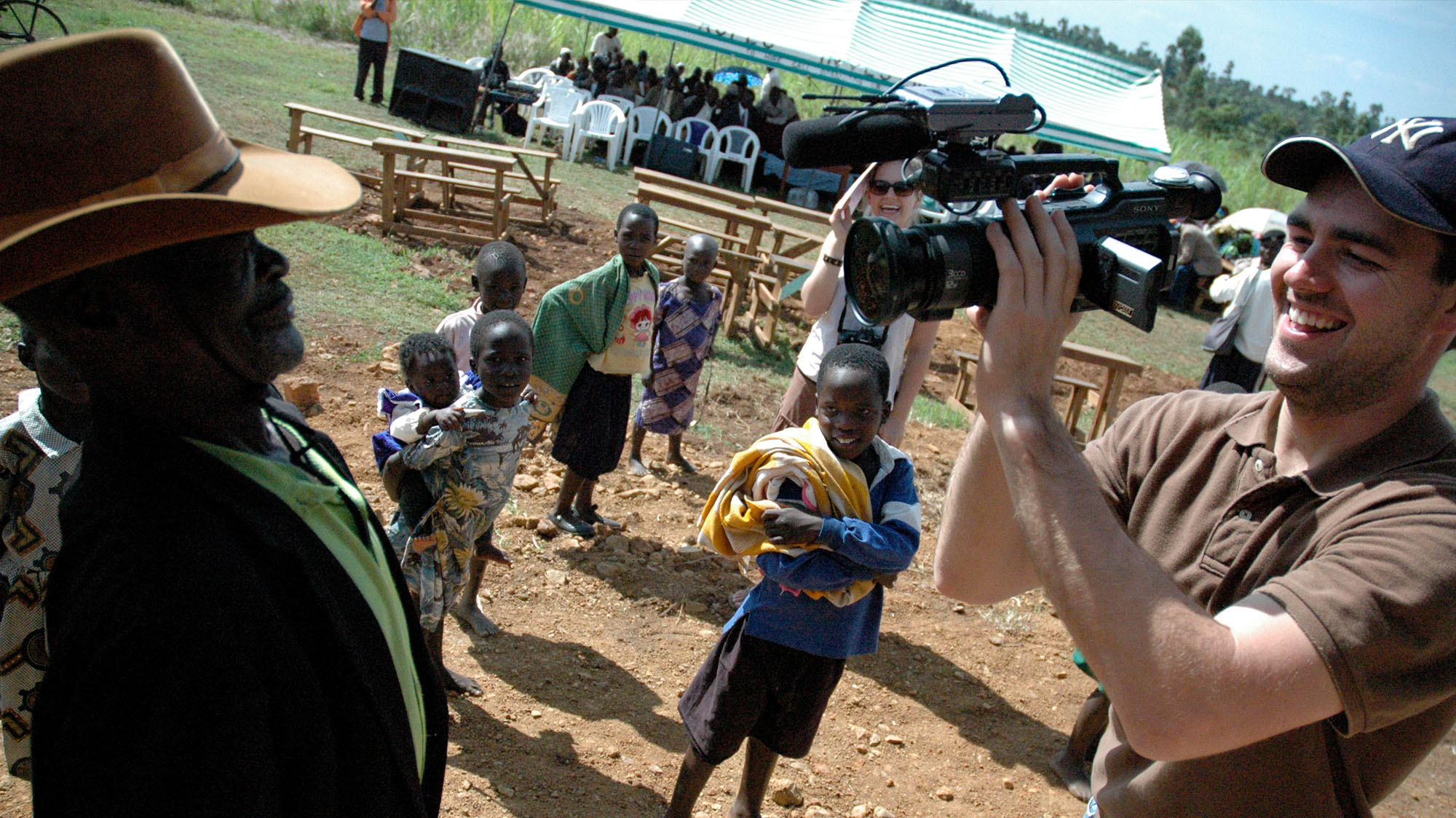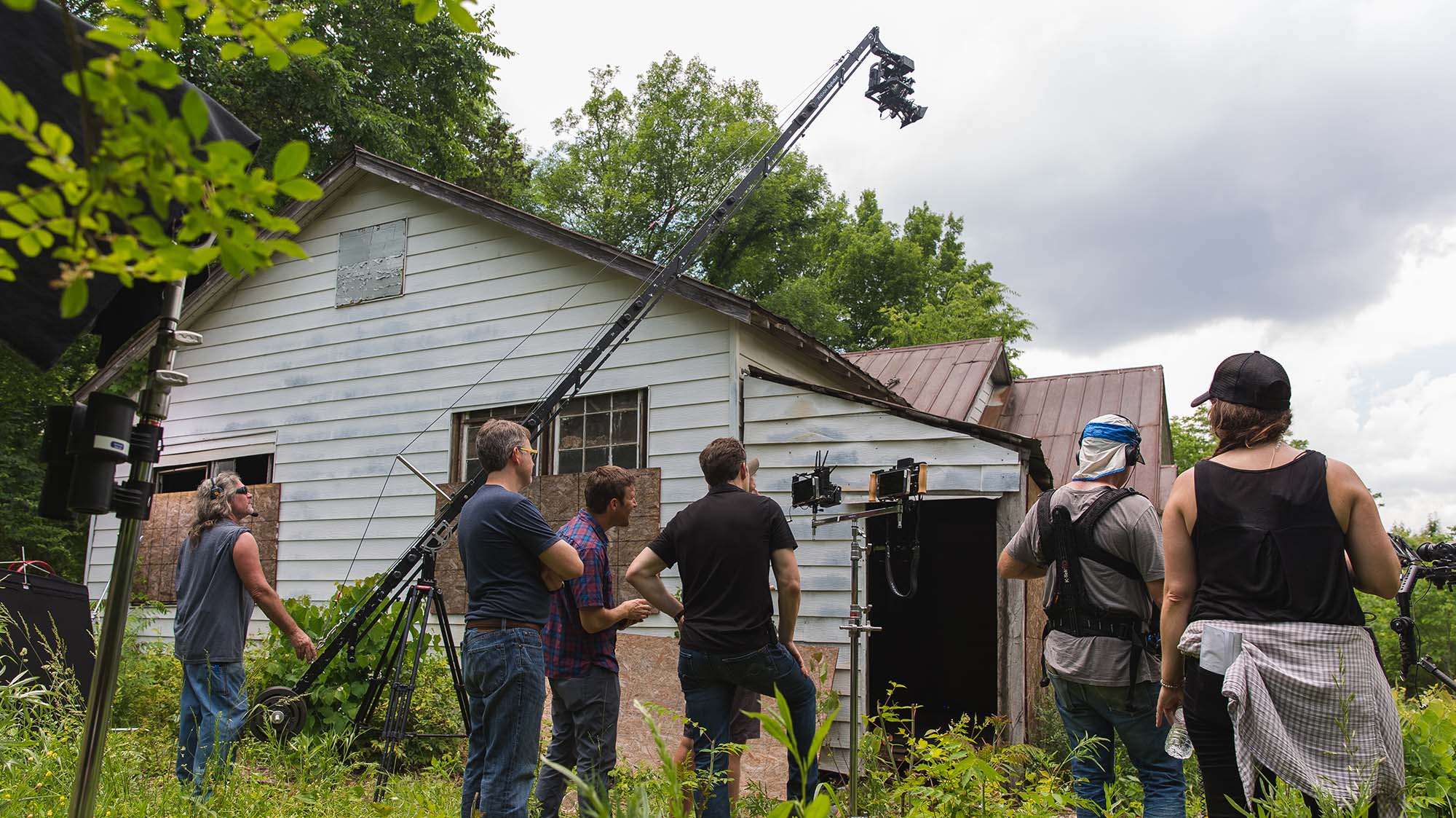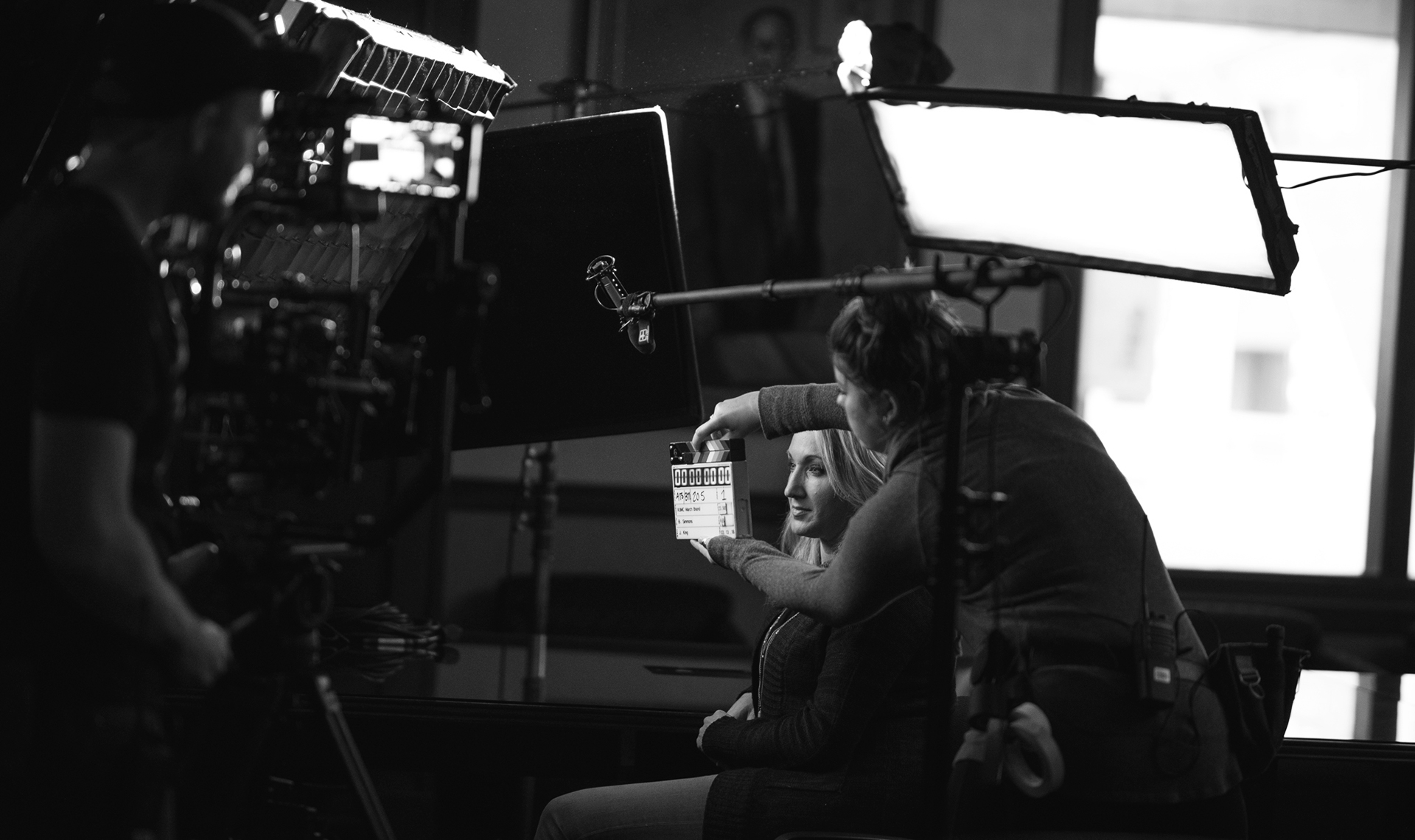Ten questions for Barry Simmons
Q&A with Barry Simmons
Date
Sep 30, 2024
Category
Interview
Barry Simmons is the founder of Stonecastle Pictures. As the director for nearly everything we produce, Barry is usually the one sitting across from subjects asking the questions. But we turned the tables recently and sat him down to answer the biggest questions we get asked here at Stonecastle, from how we started to that infamous dinner with Bruce Springsteen.
How did you get into documentary filmmaking?
BS: I was actually a TV reporter in Nashville when I discovered a story about a Kenyan medical student at Vanderbilt trying to build a health clinic back in his village. The story had lots of layers to it, and I felt really strongly about taking some time off from my job to turn it into a documentary. My boss disagreed. So in a moment of altruism I quit my job to pursue the story. Fortunately, I received a journalism fellowship in Washington, D.C., which came with funding from the Gates Foundation so that I didn’t starve.
Let’s back up. Why did you leave journalism?
BS: I was at a point in my career where it was time to make a move. It was either move up or get out. I’d won some notable awards, Emmys and Murrows, that are big deals in that world so the opportunity was there. But I was in a kind of existential crisis where I questioned whether I was even doing any good. Covering car wrecks and house fires every day was not my idea of making the world a better place. So I gave myself an ultimatum: I would quit my job before I turned thirty. (Laughs.)
Did you?
BS: Yes! Three weeks before my birthday.
How did you do it?
BS: Well, I knew the documentary I wanted to do, so it just was a matter of securing some funding to get started. My Hail Mary was applying to a journalism fellowship called The International Reporting Project, which came with a four-month stipend and some money to begin filming. I remember getting the acceptance email while I was out on a story, and I was just overwhelmed with a sense that a big new chapter in my life was beginning. I quit the next week.
VIDEO: One of Barry's local news stories at WTVF-TV in Nashville.
You’ve talked about the highs and lows from this period, from getting arrested in Nairobi to spending Thanksgiving with Bruce Springsteen. What was that like?
BS: Life was not boring, for sure. The prison thing happened as my team and I were shooting footage near the Nairobi airport. As we were driving off, local police tracked us down and pulled us over — literally with guns drawn. We knew we were in trouble when none of them would accept a bribe. After a lot of discussion, they confiscated our gear and booked us into jail with really no explanation why. I had a journalist’s visa, but they weren’t hearing it. The only reason we didn’t spend the night there is that I managed to send a text to a friend just before they took my phone. My friend notified the U.S. Embassy and the International Justice Mission, who sent people with badges to fish us out six hours later.

Barry filming a scene from Sons of Lwala in Kenya.
And spending time with Bruce Springsteen was as surreal as it sounds. It’s a long story, but basically one of the brothers we were featuring in the documentary was dating Bruce’s nanny who showed him a trailer. Out of nowhere, I got an invitation to join the brothers at the Springsteen house in New Jersey for Thanksgiving. It was extremely informal, just family and a few friends. And then us. At one point we were all playing Scrabble on the living room floor together. Completely bonkers, but at the same time you know, oddly normal. Cool as it was, my mother still hasn’t forgiven me for skipping Thanksgiving that year.
So did Bruce have any thoughts on the documentary?
BS: He offered to produce it. At one point he turns on the TV in the living room to show us a trailer that his editor had pieced together from elements of our own trailer. His editior was in the room with us and it became clear they wanted to pitch us the idea of them taking on the documentary. In hindsight, it was the offer of a lifetime and obviously one I should have considered seriously. But I had just gone to jail for this story and was wary of ceding control to anyone. So I declined. Probably the dumbest decision of my life.
VIDEO: Sons of Lwala behind-the-scenes featurette
You ended up finishing the film, called Sons of Lwala, on your own. And it did pretty well. How did you go from that to founding Stonecastle Pictures?
After we toured the film around to festivals there was kind of this sense of, “What now?” I’d spent three years of my life in service to that story, and while I was incredibly proud of it, I felt a little lost. The film wasn’t widely known, so it wasn’t like I was suddenly a marquee documentary director. I was a 33-year old guy renting space in a friend’s attic because I’d spent most my savings, and I couldn’t wait around for someone to discover me. So Stonecastle, in all honesty, was an act of desperation. I had to do something, so I bought some camera gear and started shooting whatever I could find.
I’m wondering how you developed your filmmaking style. What was that journey like from journalist to director?
What TV news gave me was tons of experience interviewing people and putting stories together on the fly. I learned to read people very quickly and pull performances out of them. That served me really well when I started making branded videos. What I had to learn, though, was how to elevate the visual side of my storytelling. I remember early on, while I was editing Sons of Lwala at nights, I would freelance at CMT and get sent to cover country music video shoots. And I’d never seen productions like that before with all the structure and personnel. I remember thinking, I could really do something with a few of these folks on my side.

Barry and the Stonecastle crew on-set as a jib flies overhead
So as I got my own work, I began bringing a few people from that world with me. First it was a DP. Then I’d add a grip and gaffer. And slowly, as the jobs got bigger, I could put together what I called my Documentary Plus team. Big enough to make something amazing, but small and nimble enough to catch the unscripted moments.
You’re known for getting these really candid, emotional interviews from your subjects. How do you get them to relax and drop their guard?
I discovered that I have a certain talent for this when I was a reporter. I probably interviewed three complete strangers a day for seven years, so I got lots of practice. It’s funny, because I’m not an extrovert at all, but I do enjoy the art of conversation. It’s a little like playing chess. You’re always thinking two steps ahead, and sometimes you have to use misdirection to get to where you wanna go.
We could talk about interviewing techniques all day long, and there are lots of little things I do to help my subject to open up. But honestly, it really just comes down to, Does the person sitting across from me feel like I care about them? That’s the main thing. I care about the people I interview. And I’m genuinely interested in what they have to say. I really believe that everybody’s got at least one great story inside them, and my job is to help find it and pull it out of them.

Preparing for an interview
Quote I really believe that everybody’s got at least one great story inside them, and my job is to help find it and pull it out of them. — Barry Simmons
You’ve been directing branded documentaries at Stonecastle for 15 years now. Is there a particular theme or kind of story that you’re drawn to?
I always start with the character and work out from there. For me, characters drive the story. If a character is interesting, I’ll watch a story about anything. Alpaca herding in the Andes? Sure. I may not be interested in the topic, but if I can relate to the main character as a human, I’m in. That’s the beauty of documentaries: they’re wonderful vehicles for transmitting universally-shared values, and when we watch them, we feel connected and affirmed. They make us want to be better.
So as a director, when I’m handed a project to help raise money for this or that, the first thing I’ll look for is that character that audiences will relate to. Who’s gonna be that person who’s able to humanize the problem and point us toward the solution? If I can lock in that person, I’m 80% there. The rest is just distilling the brand’s message down to its purest, simplest form and then making that the lens through which we tell our story. That becomes our North Star.
What’s next for you as a director? Is there one thing you’d like to do more of?
Well, my favorite stories are ones about real people who played a role in a historic moment, but for one reason or another got left behind as kind of footnote and so nobody knows about them. Those are so interesting to me. There’s a director named Ben Proudfoot who captures short films about those kinds of subjects beautifully. If I could do anything, it would be directing more short documentaries like those.
